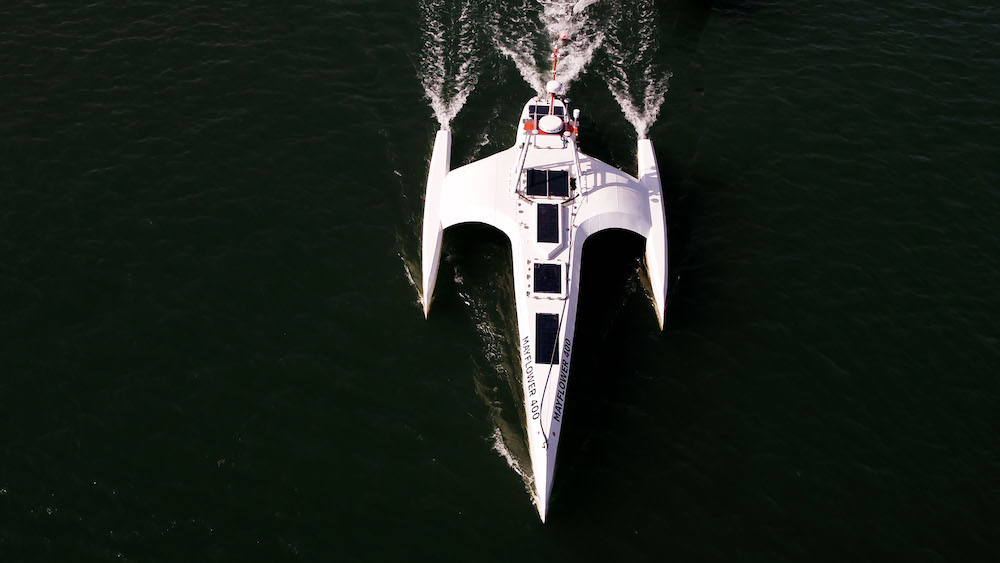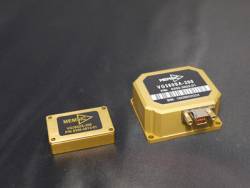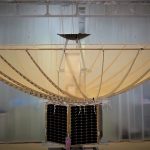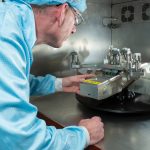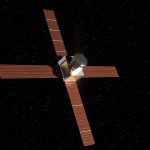Precise motion data from silicon IMUs advises vessel maneuvering
Devices also assist measurement of ocean surface
The Mayflower Autonomous Ship (MAS) is set to re-embark on its three-week trans-Atlantic journey in April 2022 equipped with two Silicon Sensing’s AMU30 inertial measurement units (IMUs). These Silicon Sensing AMU30 devices send highly precise motion data to the new ‘AI captain’ that guides the vessel. They also assist in measuring sea surface height as part of detailed scientific analysis of ocean topography.
Brett Phaneuf, co-director of the project comments: “The AMU30s have been bullet proof deployed in extremely challenging conditions and are vital to the Mayflower Autonomous Ship’s mission to collect highly resolute data from the world’s oceans.”
Steve Capers, General Manager of Silicon Sensing Systems comments: “This is an extraordinary project and we are proud that our small, rugged IMUs are at the heart of both the control of the vessel and the gathering of data that will further our knowledge of the oceans.”
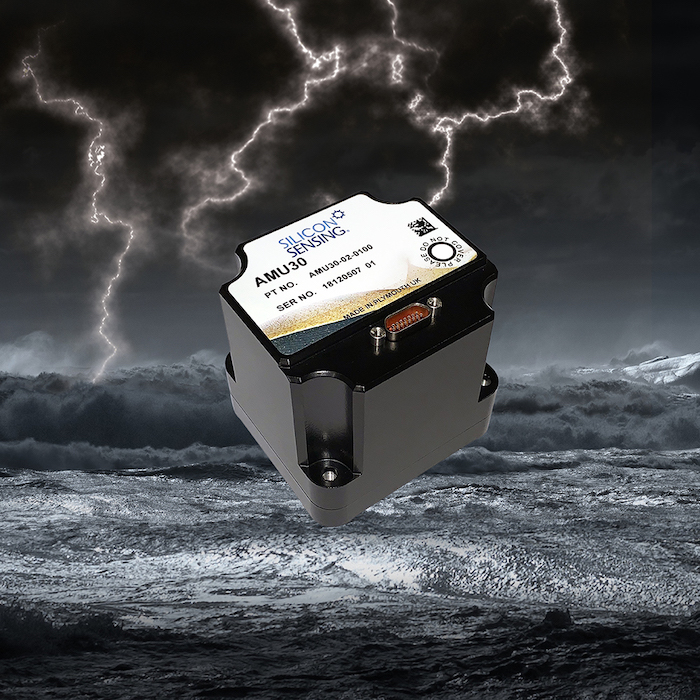
AMU30 is a micro electro-mechanical system (MEMS) unit with impressive inertial performance, including exceptional bias stability and low noise characteristics, plus an embedded Kalman Filter based AHRS (attitude and heading reference system) algorithm. It delivers precise 3-axis outputs of angular rate and acceleration, plus roll, pitch and heading angles, altitude and pressure, and temperature, at 200Hz – all critical to precise maritime navigation.
Phaneuf explains: “The two AMU30 are used to make real-time, precision measurements of the movement of the Mayflower Autonomous Ship in 6 degrees of freedom (DOF) so that the AI Captain may make minute maneuvering adjustments to optimize vessel performance in a complex wavefield, while also providing redundant general navigation capability at sea.”
He continues: Furthermore, when coupled with optical and RTK (real time kinematics) GPS information, the AMU30 assists the ship in making highly accurate measurements of sea surface height. Accurate measurements of ocean surface topography are important for studying ocean tides, circulation and the amount of heat the ocean holds.” The MAS journey across the Atlantic will celebrate the voyage of the original Mayflower some 400 years ago. It is just one element of an extensive scientific data gathering and research program the vessel will complete in the coming years. The ship is guided by its new AI Captain, built using IBM cloud, artificial intelligence (AI) and edge computing technologies, and uses a hybrid engine that draws on solar power. Working with scientists and other autonomous vessels it provides a flexible platform for deepening understanding of issues such as climate change, ocean plastic pollution and marine mammal conservation. In parallel, the development of marine autonomous systems such as this will transform ocean-related industries such as shipping, oil & gas, telecommunications, security & defense, fishing & aquaculture.

